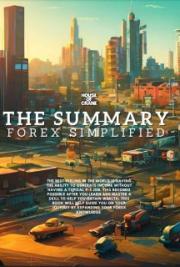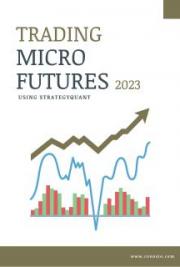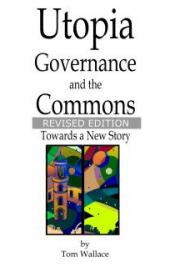Credit Reports Explained
 FREE MASTER RESALE RIGHTS
FREE MASTER RESALE RIGHTS
By purchasing this eBook, you are granted full master resale rights.
You may resell and distribute copies of this eBook to your own customers and keep ALL the money you make. There are NO royalties to pay.
With master resale rights, you may also offer resale rights to this eBook to your customers. However, the copyright for this eBook belongs to the author and publisher. You MAY NOT alter this eBook nor use its contents in another form.
Download eBooks with resell rights at
http://www.sallys-ebooks.co.uk
Download business and web design eBooks and turnkey websites and web scripts at
http://www.dotcomallsorts.com
HOW YOUR CREDIT REPORT AFFECTS YOU
The contents of your personal credit report are very important, and help determine whether or not a lender accepts your application for credit, such as a credit card, loan or mortgage.
Your credit report can affect your ability to:
• Get a loan
• Get a credit card
• Obtain a mortgage
• Get the best credit deals
As the information held about you by credit reference agencies like Experian is used to help determine what credit you can obtain, it is important that those details are correct.
You can view your credit report online for FREE at:
http://www.dotcomallsorts.com/free_credit_report.php
WHAT INFORMATION IS CONTAINED IN A CREDIT REPORT?
Credit references agencies – the largest in the UK is Experian – collate information about your financial background and past behaviour and format this data into your unique credit report.
Lenders see this information when they decide whether or not to offer you a loan, mortgage or credit card. It influences their assessment of the likelihood that you will repay them.
Information comes from two main sources:
Get a FREE CREDIT REPORT NOW!
• Public records, such as court judgements, individual voluntary arrangements and bankruptcies. Your credit report also shows whether you are registered to vote – lenders use this as a precaution against fraud, to check that you are who you claim to be and live where you say you do.
• Information from lenders and financial institutions, such as records of the number of loans you have and whether you have ever missed a repayment.
It’s important that all this information is as up to date as possible and correctly reflects your circumstances. Then lenders will make the best-informed decisions – and you will get the right deal.
You can view your credit report online for FREE at:
http://www.dotcomallsorts.com/free_credit_report.php
WHY YOU CAN GET REFUSED CREDIT
Lenders turn down millions of applications every year. If you are one of the unlucky ones, you should be given an explanation. If not, ask for some guidance.
For example, you may appear to be carrying too much debt from other sources or your credit report rang alarm bells, perhaps because you had missed some payments on a previous loan. It may simply be that you do not fit the lender’s profile for a particular loan.
You can always appeal against the decision. This may give you chance to provide further information. For example, your poor credit record may stem from a one-off event that no longer applies such as time off work you may have had during a serious illness or enforced redundancy.
Get a FREE CREDIT REPORT NOW!
Finally, there’s nothing to prevent you applying to another company. Different lenders may take a different view. But be careful how many applications for credit you make in the short term.
If you allow a significant number of companies to search your credit report, this could damage your credit rating as it could be interpreted to mean that you are desperate for money or possibly that someone is trying to commit fraud.
It is always sensible to check your credit report before making any further applications. That way, you can be sure that the information in it is up to date and correctly reflects your circumstances.
You can view your credit report online for FREE at:
http://www.dotcomallsorts.com/free_credit_report.php
THE CREDIT BLACKLIST MYTH
It has never seemed easier to borrow money, so if you do get turned down, the obvious question is “Why?” swiftly followed by the nasty suspicion, “Maybe I’m on a credit blacklist.”
The good news is that you're not. In fact, there’s no such thing as a credit blacklist. But there is a host of reasons why you might be rejected.
Your credit report has worried the lender:
This unique, personal record of your credit history could show that you already have a number of loans and the lender may be worried that you will not be able to repay another.
Get a FREE CREDIT REPORT NOW!
You may not fit the lender’s profile:
For example, a credit card issuer may only give cards to people who already have fewer than three, or a mortgage lender may specialise in first-time buyers.
You are a non-standard credit risk:
According to Datamonitor, the independent market analyst, more than one in five adults in the UK are deemed nonstandard. They may include the self-employed, others who cannot provide sufficient proof of income and people who have an outstanding county court judgment (CCJ) against them or have had their homes repossessed for nonpayment of mortgage.
You move around:
Credit companies look for stability – for example, living at the same address for at least three years or having a longterm relationship with the same bank. So, if you move around a lot or switch banks often, this may tell against you.
Your credit score wasn’t high enough.
Lenders generally base their decisions on a credit score, which they calculate using the information in your credit report and your application. Every lender has a different formula which can even vary from one type of loan to another.
You can view your credit report online for FREE at:
http://www.dotcomallsorts.com/free_credit_report.php
Get a FREE CREDIT REPORT NOW!
WHY CHECK YOUR CREDIT REPORT?
If anything in your report is out of date or gives a misleading picture of your willingness or ability to repay a loan, mortgage or credit card, it can affect your chances of getting the best deals. It can even lead to outright rejection by lenders.
For example, you may have separated from a partner who has since run up debts but, because you have still got a joint account, his or her payment behaviour could be affecting you. You won't see their credit data on your report but you will find a note of any financial association.
Or you may have shopped around for the best offer, without realising your enquiries have been registered as multiple applications. These should show as quotation searches. If they are down as applications, lenders could think you are desperate for money, have over-extended yourself or even that a fraud is being planned.
You could even discover applications and credit accounts in your name that you did not ask for. In that case, your identity may have been used fraudulently.
You can view your credit report online for FREE at:
http://www.dotcomallsorts.com/free_credit_report.php
HOW TO MAKE CHANGES TO YOUR CREDIT REPORT
There is a variety of information held on your credit report from a variety of sources. If any of it is wrong, it could affect your ability to get credit.
Here's how to correct the information held on your report…
Get a FREE CREDIT REPORT NOW!
The electoral roll
If you have registered to vote and your credit file does not show this, please contact the credit reference agencies listed at the bottom of this article and they will investigate the matter. If you have not registered to vote, you may want to contact your local authority about filling in an electoral registration form.
If you move home you can tell your local authority who will tell credit reference agencies about your change of registration in the course of the year.
Court judgments
If you believe a county court judgment has been recorded incorrectly, you should contact the county court, quoting the case number included on your file. If the judgment was recorded incorrectly the county court will alter their records. Credit reference agencies are told about any such changes within four weeks, but if you give them original court documents, in the form of a Certificate of Satisfaction or Cancellation, they may be able to change their sooner if necessary.
If you have paid a Scottish Decree, you should send Registry Trust (address below) a receipt or a letter from your creditor (known as the pursuer) to confirm your payment.
If you write to Registry Trust Ltd questioning the accuracy of a judgment recorded on your file, asking for an entry to be changed, you should send a cheque for £4.50 to cover their search fee. They will then tell the credit reference agencies about any change to your file.
For judgments made in Northern Ireland, if you provide
Get a FREE CREDIT REPORT NOW!
documents from a plaintiff to confirm a payment, the agencies will change their records. If you have any questions about the accuracy of a judgment recorded on your file, contact the court concerned.
Registry Trust Ltd.
173-175 Cleveland Street London
W1P 5PE
Bankruptcies
If a bankruptcy order against you is annulled (cancelled) or discharged (that is, you have met all terms), you should send a copy of the Annulment Certificate or Order of Discharge to the credit reference agencies. They will then update their records. If your bankruptcy has been annulled they should completely remove any record of it from your file. If your bankruptcy has been discharged a record of it will be kept on your file but it will show that it has been discharged.
Voluntary arrangements
If you have any questions about a record of a voluntary arrangement you should contact the supervisor who dealt with your case. If you send documents from the supervisor to confirm that the information on your file needs to be changed, the agencies will change their records.
Credit accounts
After carefully studying the credit account details (credit cards, loans, mortgages, etc.) on your file, if you believe any information needs to be changed you should write to the lender concerned and ask them to give the correct information to the credit reference agencies.
Get a FREE CREDIT REPORT NOW!
Searches
Credit reference agencies will delete searches only when they are instructed to do so by the company who searched your file. If you are concerned about the accuracy of a record of a search, you should contact the company which carried out that search.
Linked addresses
Links between your previous addresses, or any addresses you may use for correspondence, may be listed on your credit file. The link will only be broken when the reference agencies are asked to do so by the organisation that created the link.
CIFAS
If you have any questions about a CIFAS record, write to the organisation concerned. If you disagree with that organisation over the information on your file, ask the organisation for details of the scheme for settling disputes.
Financial associations (shared financial responsibility) If a financial association is shown, and you do not share a financial responsibility with the other person, or if that financial association no longer exists, you should write to the credit reference agencies. They will investigate the matter and make any necessary change to your file.
Aliases
If any names are shown on your credit report that you have never used, you should contact the company listed as providing the other name, or write to the credit reference agency and they will investigate the matter and make any necessary changes to your file.
Get a FREE CREDIT REPORT NOW!
Information about other people
If you share no financial responsibility with any other person mentioned on your file you can ask the agencies to ‘create a disassociation’. This breaks any connection between your information and theirs and so makes sure their information is removed from your file, and that your information is removed from theirs.
To do this you must give the agencies your, and the other person’s, full name and date of birth, details of your relationship and any shared addresses.
You can view your credit report online for FREE at:
http://www.dotcomallsorts.com/free_credit_report.php
HOW YOUR CREDIT REPORT AFFECTS MORTGAGES
For most of us, buying a home means applying for a mortgage – and success or failure could depend on your financial history.
Your credit report is your personal financial history. It includes a wide range of information on your credit behaviour, from your credit cards and loans to your repayment record, previous mortgages and details of overdrafts.
The report also confirms whether or not your name is on the electoral roll at your current address and how many times your credit report has been searched.
Credit reference agencies – Experian is the UK’s largest – hold this data on more than 40 million people and 24
Get a FREE CREDIT REPORT NOW!
million households. So it’s likely that they have information about you.
When deciding whether or not to give you a mortgage, the mortgage lenders look first at the details on your application form. If you don’t fit their criteria for being offered a loan, they are unlikely to search your credit report. Typical deal-breakers include being too young, insufficient current earnings or too short a self-employment history.
They may then look at any previous relationship that you may have had with them and how you conducted it.
The next step is to search your credit report. A lender may use this information to help create your credit score, by comparing you to past customers with similar
characteristics. The result is a numerical assessment of how good a credit risk you appear to be. Normally, the higher your rating, the more likely the company is to lend you the money you want.
Getting a copy of your report before you apply for a mortgage will allow you to check that the information it contains is accurate and up-to-date.
For example, if you had a court judgment against you but have paid the debt, you should make sure the record reflects this. Equally, if you paid off the debt within one month, the judgment can be removed from your report. Or perhaps the fact that you registered to vote has been missed and your name has not been confirmed on the electoral roll. In this case, you should let Experian know. They will investigate and amend their records accordingly.
If you believe that some of the information on your credit report needs further explanation, Experian will help you to
Get a FREE CREDIT REPORT NOW!
add a brief statement or Notice of Correction to your report. This will be seen and may be taken into account by any lender using the information to which it relates.
Lenders turn down roughly one-third of all mortgage applicants. If you are one of the unlucky ones, you should be given an explanation. If not, ask for some guidance. For example, you may not be offering enough deposit or appear to be carrying too much debt from other sources. It may be that your credit report rang alarm bells, perhaps because you had missed some payments on a previous loan.
You can always appeal against the decision and ask the lender to look at your application again. This may give you chance to provide further information. For example, your poor credit record may stem from a one-off event that no longer applies, such as a serious illness or enforced redundancy.
Finally, there’s nothing to prevent you applying for a mortgage from another company. Different lenders may take a different view. But be careful how many applications for credit you make in the short term.
If you allow a significant number of companies to search your credit report, this could damage your credit rating as it could be interpreted to mean that you are desperate for money or possibly that someone is trying to commit fraud.
If you know that you have been refused credit because of your credit report, it is always sensible to check it before making any further applications.
Following all the above tips could turn your dream home into a reality.
Get a FREE CREDIT REPORT NOW!
PROTECTING YOURSELF FROM IDENTITY FRAUD
What would you do if your credit cards were stolen? If goods that you did not purchase were charged to your credit accounts? If unauthorised credit accounts were opened in your name?
These actions are typical examples of identity fraud, where criminals steal victims' identities in order to take over their credit accounts or to open new accounts in their names.
Most of us have never experienced identity fraud and many of us may be unconcerned and believe we're not affected by it. But we are.
Identity fraud affects everyone!
Identity fraud is on the increase and is the UK’s fastest growing crime. According to the Cabinet Office, identity fraud costs the UK at least £1.3bn every year and is one of the more difficult frauds to combat. The trouble with a successful fraud is that both consumers and lenders are fooled.
Although lenders are employing ever-more sophisticated methods to spot fraudsters, people who are targeted by fraudsters often take up to 14 months to realise they are victims of identity fraud.
When criminals buy goods and services on credit using false information, we all pay through higher prices and more expensive credit terms, even if our own accounts are untouched. And when someone is victimised by a particularly successful scam, criminals are more likely to continue cheating others using similar fraudulent operations.
Get a FREE CREDIT REPORT NOW!
Some typical scams
The rise in Internet usage has meant an increase in the number of online scams. Here are some examples:
The Nigerian scams
The fraudsters send emails to people telling them they can release a fortune that is tied up in an African bank by allowing them to transfer the money into the person’s account. In return, the person will be given a share of the profits.
Another variation on this is an email supposedly from the widow of a high-ranking Nigerian official pleading for the recipient to help her access her late husband’s money. Again, the recipient is asked for their bank details.
The catch with these scams is, of course, that rather than money going into the person’s bank account, the fraudsters clean out them out using the details sent to them.
Phishing
This form of fraud has made headlines recently, with Barclays, Lloyds TSB, Natwest and even the Bank of England affected.
Barclays customers were sent emails saying that the bank was making technical changes. There was a link to go to a page where customers were prompted to enter their account details
Lloyds TSB customers received emails saying their accounts would be cancelled due to a new security measure unless they went to a site and entered their details
Natwest, Halifax and Nationwide customers were sent
Get a FREE CREDIT REPORT NOW!
emails saying they needed to verify their accounts by going to a site and entering their details. An email supposedly sent from the Bank of England urged people to download anti-virus software
The fraudsters set up "spoof" email addresses that look like they could credibly belong to the institution. Once they have received account details, they siphon money out via "mules" – people with UK accounts – to their own accounts abroad. These scams are believed to be run from Eastern Europe.
Bottom line is, banks or other financial businesses will NEVER email you, asking for private information. DO NOT repond to these emails!
Lottery and prize draw wins
Emails are sent out to people telling them they’ve won a lottery or prize draw and they need to send a payment for "administrative" or some other purpose in order to claim their winnings. Of course, there is no prize...
HOW TO IMPROVE YOUR CREDIT REPORT
Check your credit report
You need to be sure that it is up to date and accurately reflects your circumstances. Keep on checking – your report changes when your circumstances change.
Don’t let debts pile up
Make your repayments on time – this shows potential lenders that you are likely to meet future repayments. Better still, try to pay off any outstanding amounts on credit card accounts completely.
Get a FREE CREDIT REPORT NOW!
Register to vote
Lenders check the electoral roll as a precaution against fraud, to ensure that you are who you say you are and live at the address you have given. If your name doesn't appear, lenders may not be able to confirm that you live at your address, so you could face ID checks or even rejection.
Protect your identity
If you notice something surprising on your credit report, such as a loan application you did not make, you could be a victim of identity fraud. Inform Experian, who will help to investigate and offer you help and advice.
Don't leave unnecessary footprints
When shopping around for credit, ask companies for a quotation before making a formal application. Lenders may interpret an abnormal number of credit application searches as indicating that you have applied for an unmanageable level of credit. They may even suspect fraud.
Tell the truth
Don’t lie or fudge the truth on an application form. Lenders find out and any inaccuracies on your form will tell against you and cause difficulties in future.
OK, so now you have more understanding about credit reports, check your credit report now!
You can view your credit report online for FREE at:
http://www.dotcomallsorts.com/free_credit_report.php
Get a FREE CREDIT REPORT NOW!
Download eBooks, turnkey websites and web scripts at
http://www.dotcomallsorts.com
Need reliable web hosting?
500MB of webspace without all that technical jargon!
http://www.bigfatwebhosting.co.uk
Register cheap domain names at
http://www.urlfreak.com
Download eBooks with resell rights at
http://www.sallys-ebooks.co.uk
Get a FREE CREDIT REPORT NOW!








